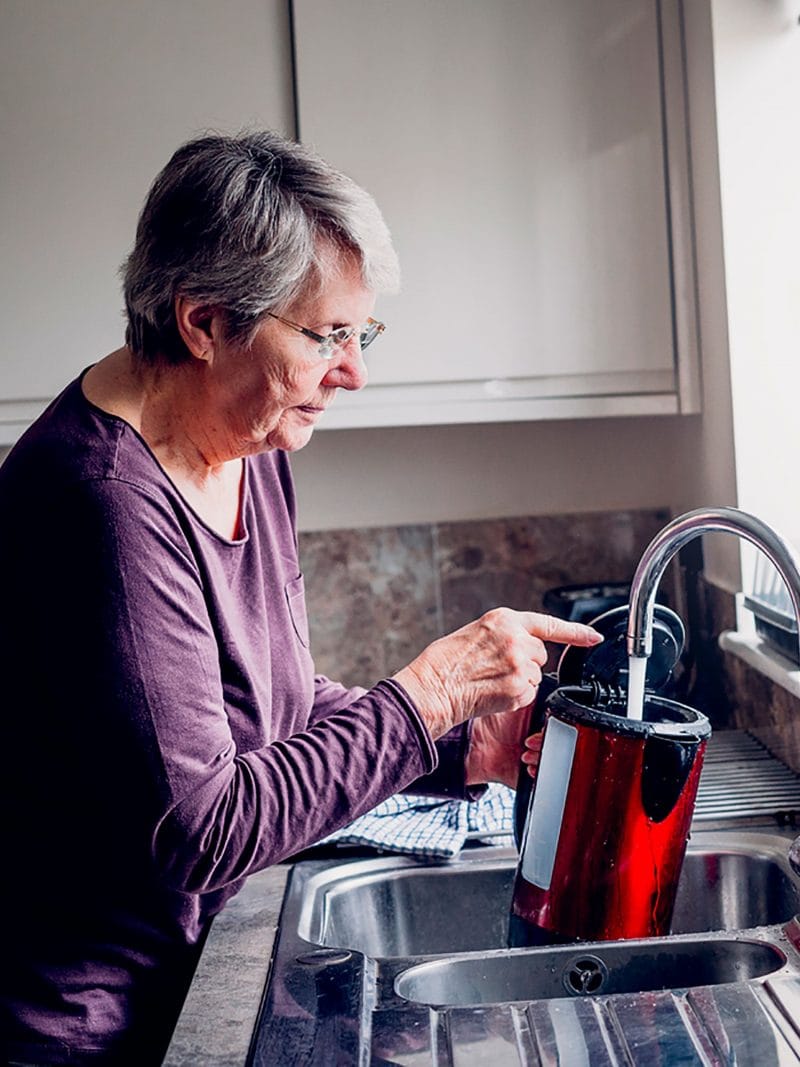We fund research and development projects relating to people’s welfare at all stages of life. Our mission is to advance social well-being; we want people to feel engaged with, and supported by, wider society and to experience a good quality of life, regardless of their background.
Factors such as family, work and income can positively or negatively affect people in different ways. We want to understand how and why that is, and how people are differently affected depending on their class, gender, ethnicity, disability, age, and location.
Where people are disadvantaged, we want to identify what policy changes might address that and how the risks people face can be mitigated.
We also aim to understand the impact of digital technologies on people’s welfare, alongside the work of the Ada Lovelace Institute.
Why welfare needs research
-

Inequality is a significant problem in the UK and has been made worse by COVID-19. People from most ethnic minority groups have lower employment rates than their white counterparts, despite most minority groups doing well in education. During the pandemic, workers aged between 16 and 24 accounted for a disproportionate number of those who became unemployed. Our research aims to understand how we can mitigate inequalities such as these.
-

Family roles in the UK are still mostly distributed along gender norms, despite cultural shifts towards greater equality in the home. Women carry the main burden of domestic work and care, compromising their work and career progression and men still spend less time with their families. Even where the mother was the highest earner in the household, extra childcare needs during the pandemic have disproportionately been met by women. Through our research, we aim to inform policy responses to address these persistent inequalities.
-

Over 13 million UK citizens either have limited use of the internet or do not use it at all, with the majority being from lower income households. Research is needed to understand the negative implications this has on life chances, health, and economic well-being.
-

Gains in the transition to net zero are likely to be felt unequally. For example, gas, electricity and other heating costs as a share of spending for low income households is already 5 times that of high income households. This might increase if the costs of transition to low-carbon alternatives are passed on in higher bills. Research is needed to prevent widening inequalities and to manage change fairly.
What do we fund in welfare?
Our funding priorities are motivated by how certain individuals and groups are potentially vulnerable to adverse outcomes, and how those risks can be mitigated, or channelled more positively. Mitigation will, in turn, involve drawing on resources, broadly defined to include financial and physical assets such as money and housing but also less tangible factors such as practical and emotional support. Support may come from oneself, such as through saving for the future, or from family, work, community and the state. The extent to which vulnerability can be mitigated will vary according to individual and group characteristics including age, gender, ethnicity, disability and sexual orientation. Applications are welcome in all of these areas, but we are particularly interested in:
- How these different sources of support interact with major social, economic and technological forces that are shaping our society. For example, how new technologies can alleviate, exacerbate and shift vulnerability, and affect concepts of trust, evidence, and authority.
- Research into how family, work, and the intersection of the two will affect individual and societal well-being in the coming years. These topics link strongly to other core domains of Education and Justice and we are also interested in projects which explore the intersections between these domains.
- What types of economic policies and systems would best enhance individual and societal well-being and challenge existing inequalities, as society adjusts to turbulent and uncertain growth in the economy, earnings and productivity in the post-COVID-19 world?
- How will the costs and benefits of the transition to a net zero-emissions economy be shared fairly across the population and across generations?
- How can we better understand the economic determinants of health outcomes and their impact on social well-being, both in the current context and in the face of long-term demographic trends?
- We also fund research into musculoskeletal conditions through our Oliver Bird Fund.























